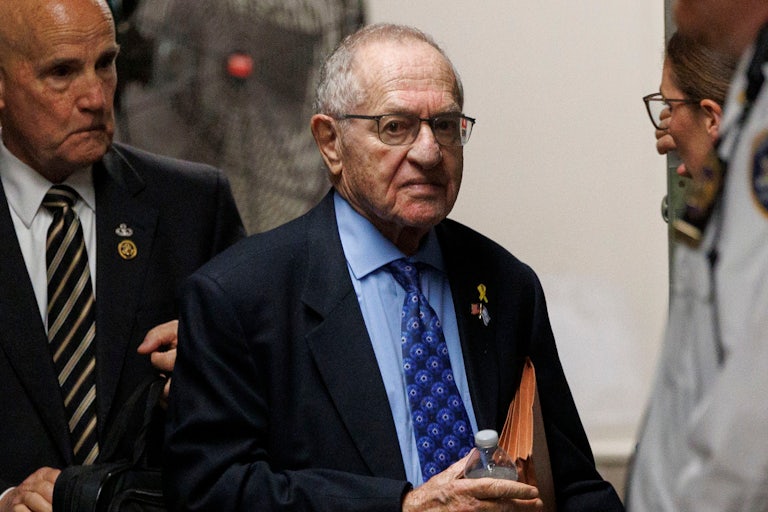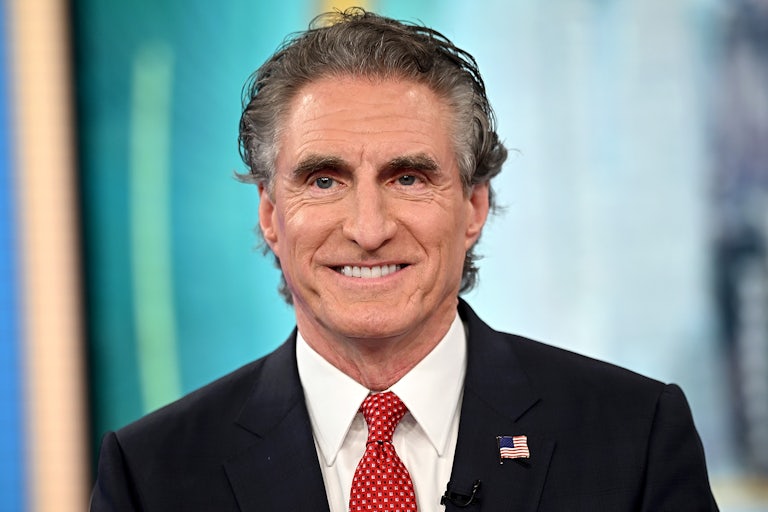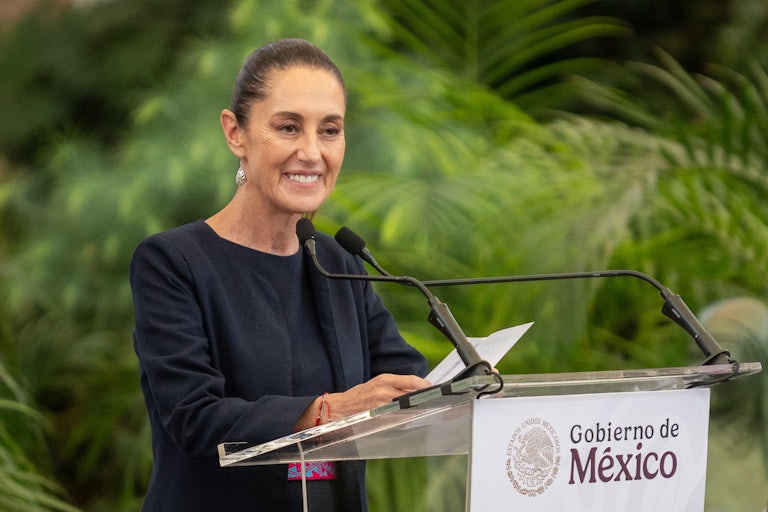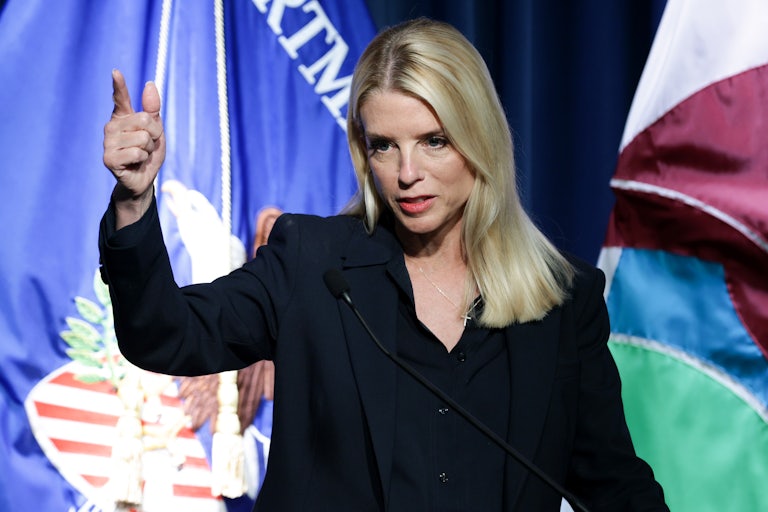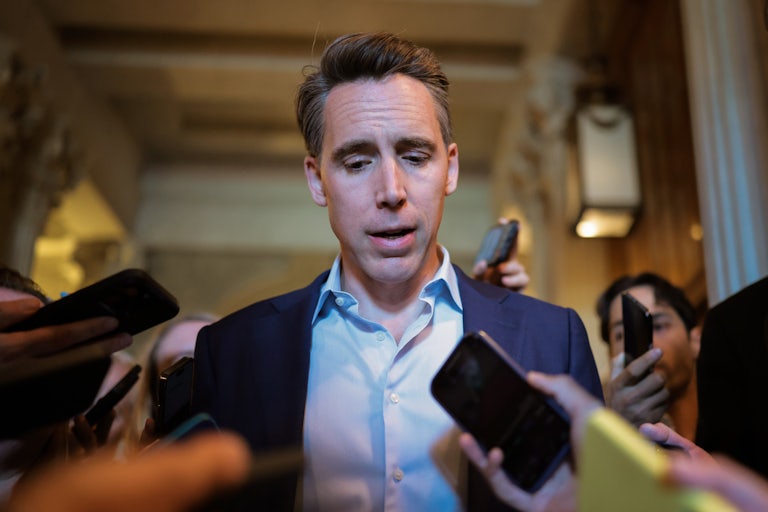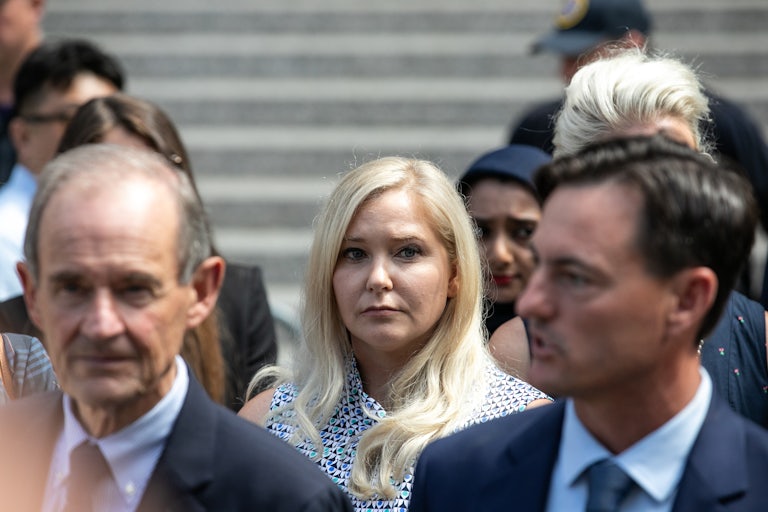Trump’s Tariff Plan Suddenly at Risk One Day Before Deadline
Federal judges are questioning Trump’s power to impose tariffs whenever he wants.
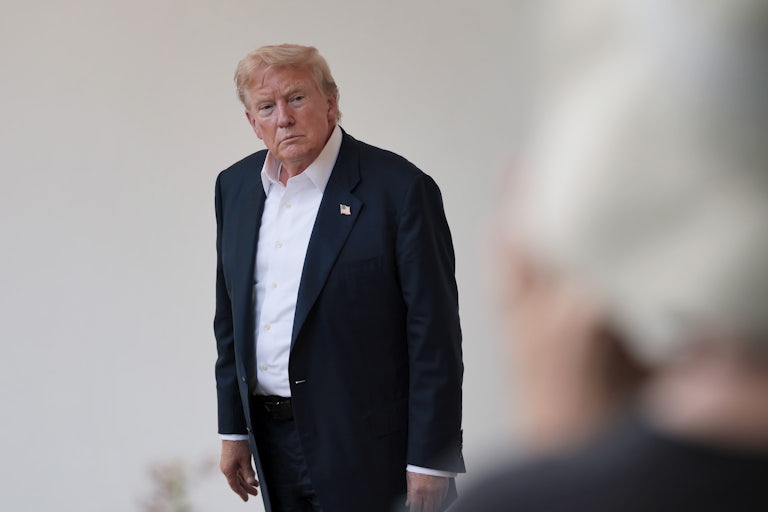
One day before Donald Trump’s worldwide tariffs are slated to go into effect, an appeals court is scrutinizing his use of an “emergency” law to justify the sweeping duties.
On Thursday, the U.S. Court of Appeals for the Federal Circuit heard oral arguments on the legality of the tariffs—a high-stakes lawsuit, brought by 12 Democrat-led states and five small businesses, which could derail the president’s tariff scheme.
Since February, Trump has justified his tariffs by citing the International Emergency Economic Powers Act, or IEEPA, a law from 1977 that allows the president to issue economic sanctions in an emergency situation: specifically, to counter an “unusual and extraordinary threat.” Trump’s use of the law allows him to sidestep Congress, which is granted the power to impose tariffs by the Constitution.
He’s the first-ever president to impose tariffs by invoking the emergency law—something many of the appeals judges pointed out.
“It’s just hard for me to see that Congress intended to give the president in IEEPA the wholesale authority to throw out the tariff schedule that Congress has adopted after years of careful work and revise every one of these tariff rates,” said Judge Timothy Dyk. “It’s really kind of asking for an extraordinary change to the whole approach,” he continued.
The act has forced Trump to create so-called emergencies that his tariffs must mitigate. In March, Trump said that the fentanyl emergency was the reason behind his tariffs on Canada, China, and Mexico. In April, he upped the ante and levied a 10 percent global baseline tariff, naming the emergency in question as the trade deficit.
But one judge, Raymond Chen, pushed back on that reasoning: “Can the trade deficit be an extraordinary and unusual threat when we have had trade deficits for decades?”
Overall, CNN reports that 10 out of 11 judges on Thursday were skeptical of the president’s use of the act, questioning why Trump is leaning on a law that makes no reference to tariffs and has never before been used to levy them.
Judge Jimmie Reyna asked, “But IEPPA has been rarely used, hasn’t it? It’s been over 50 years since it’s been used?”
He continued, “IEEPA doesn’t even say tariffs, doesn’t even mention them.”
The U.S. Court of International Trade sided against the president in May, and the administration quickly appealed. The appeals court has allowed Trump’s tariffs to remain in place while the case is being challenged. Depending on the court’s ruling—which, as of now, is not looking too good for Trump—the tariffs’ future could be left in the increasingly partisan hands of the Supreme Court.
